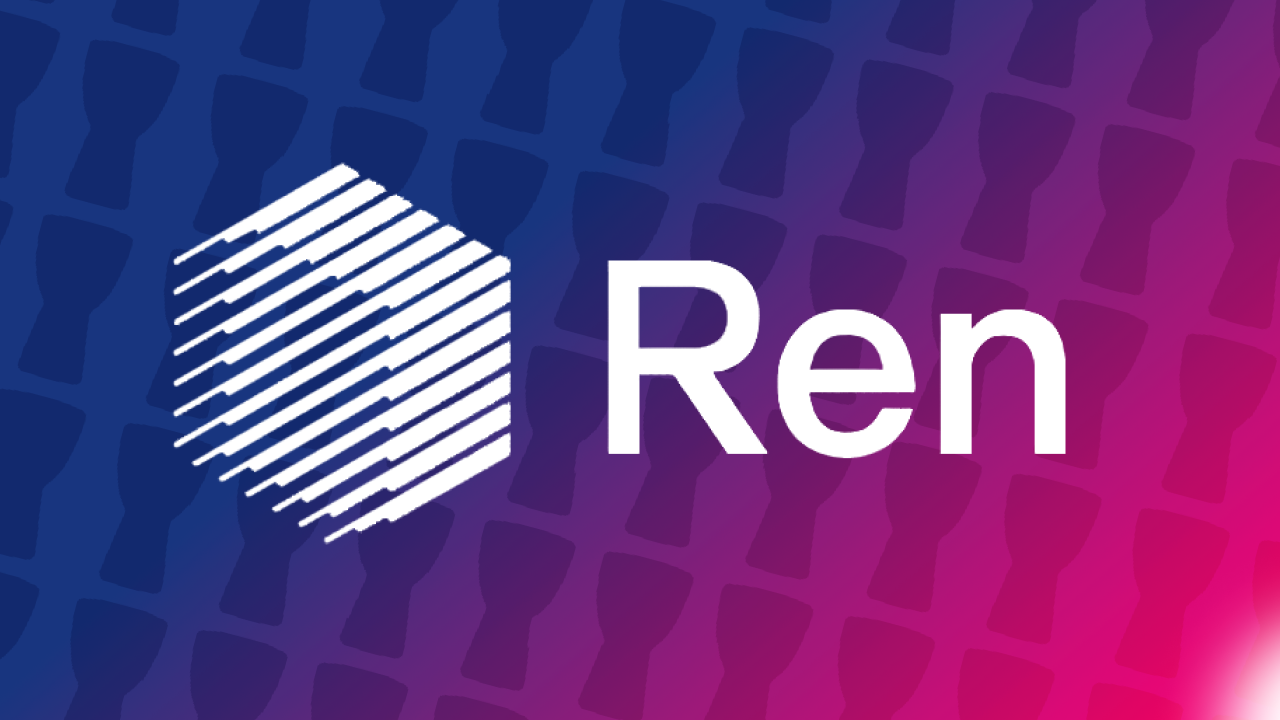
For the time being, most applications and platforms in decentralized finance are built on Ethereum, a cryptocurrency which doubles as a sort of network spread among different computers. This is primarily because Ethereum has proven itself to be a safe and reliable base on which to build this new generation of applications.
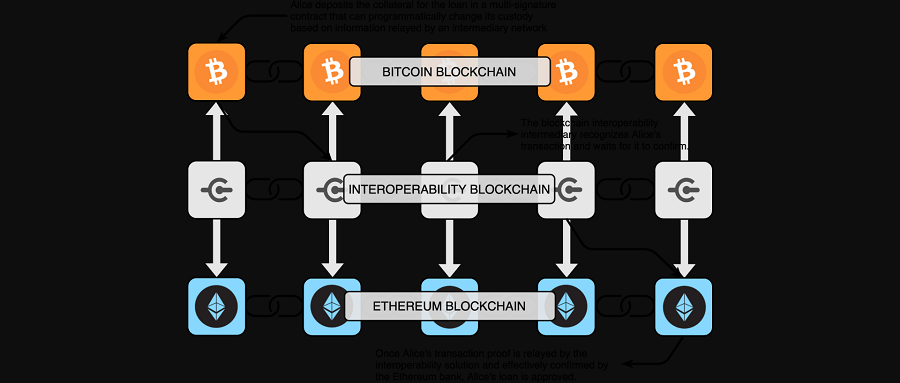
However, this has made it hard for non-Ethereum based cryptocurrencies to be used in these applications, since they are not a part of Ethereum’s ecosystem. This makes it hard to use popular cryptocurrencies such as Bitcoin in DeFi applications.
Ren is a cryptocurrency project which seeks to make it possible to use non-Ethereum based cryptocurrency assets such as Bitcoin in DeFi applications. While there are many services which do this already, almost all of them are centralized and some of them even require personal identification to use.

Ren lets you use some of your favorite assets in DeFi applications in a decentralized manner without requiring any sensitive personal information. In fact, they do this in a way which is both secure and completely private. As such Ren has been an incredibly popular project ever since it launched its final version earlier this year.
Who created Ren?

Ren was created by Australians Taiyang Zhang and Loong Wang. Both have extensive experience working in computer science and finance. Ren was originally released under the name Republic Protocol in early 2018 and focused around providing anonymous cryptocurrency trading. In 2019, the project rebranded to Ren with the goal of creating a process which would make it possible to use non-Ethereum assets in Ethereum applications.
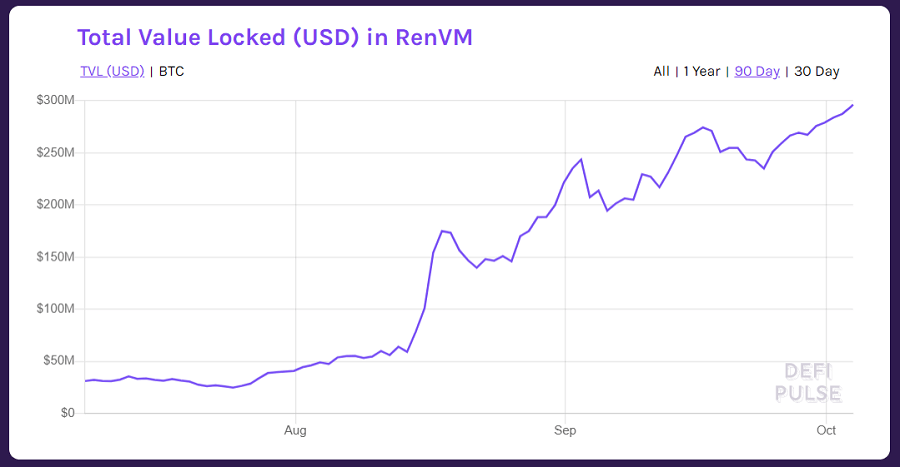
Ren was launched in May of this year and made it possible to use Bitcoin, Bitcoin Cash, and Zcash in any Ethereum application. Support for more cryptocurrency assets is currently being developed by the team. The project has been quite successful, transferring nearly 300 million USD of Bitcoin to Ethereum applications at the time of writing. The amount of cryptocurrency it has transferred has been steadily increasing since its release in May.
How does Ren work?
As you might imagine, Ren is quite complex under the hood. Ren is built on Ethereum, and what it does is it safely and anonymously custodies other cryptocurrencies and creates ERC-20 token equivalents which can be used in Ethereum applications. This is quite the mouthful so let us go through each buzzword one by one.
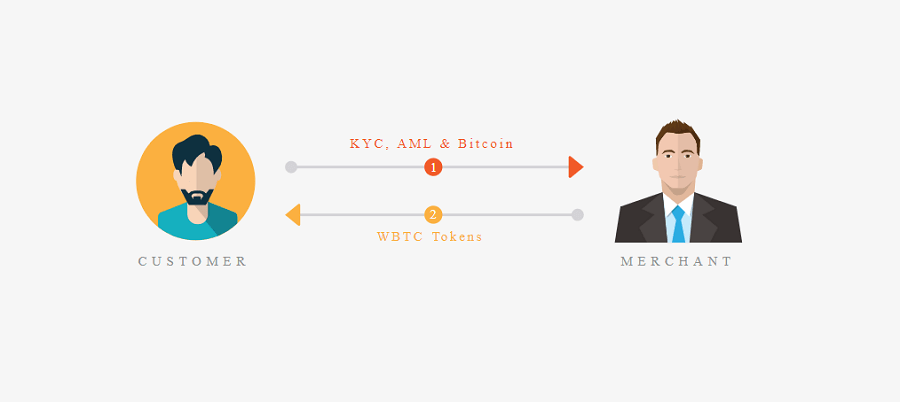
For those unfamiliar, custody means holding something in your possession. Prior to Ren, if you wanted to use Bitcoin in Ethereum, you would have to go to a centralized service, give them your personal information along with your Bitcoin, and then they would mint (create) ERC-20 tokens which can be redeemed 1-1 for the Bitcoin you gave them if and when you decide to withdraw your Bitcoin from Ethereum.
ERC-20 tokens are cryptocurrencies built using Ethereum’s cryptocurrency template. Prior to Ethereum, if you wanted to create your own cryptocurrency you had to build it from scratch. Ethereum makes it possible to create your own custom cryptocurrencies which can have pre-programmed properties to behave in a certain way.
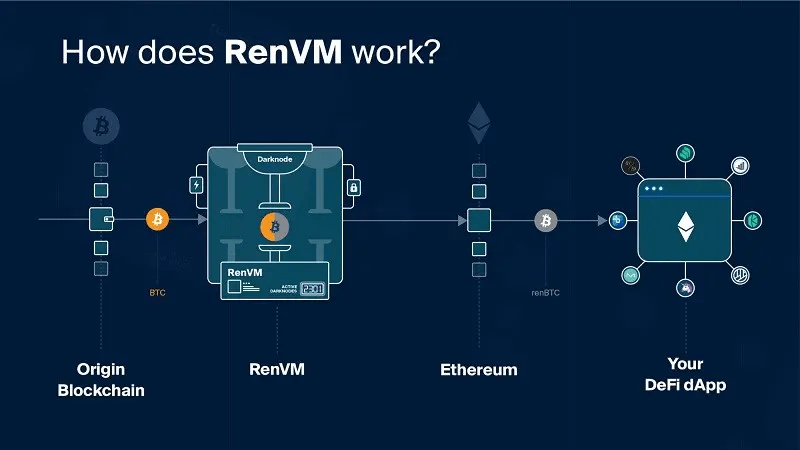
For example, Ren’s own ERC-20 Bitcoin token, renBTC, is created when you give the Ren platform your Bitcoin along with a network fee paid in REN cryptocurrency (an ERC-20 token). An equivalent amount of renBTC is deposited into the Ethereum wallet address you provide. You can then use the tokenized version of Bitcoin (renBTC) in Ethereum-based applications.
To get Bitcoin back, you simply send renBTC to the Ren application, it burns your renBTC tokens and sends regular Bitcoin to the wallet address you provide. Ren’s network consists of thousands of computers which only receive encrypted signals to store and convert Bitcoin to renBTC and vice versa. None of them know how much Bitcoin or renBTC is being exchanged, and they are rewarded with REN cryptocurrency for providing these custodial/minting services.
Why is Ren important?
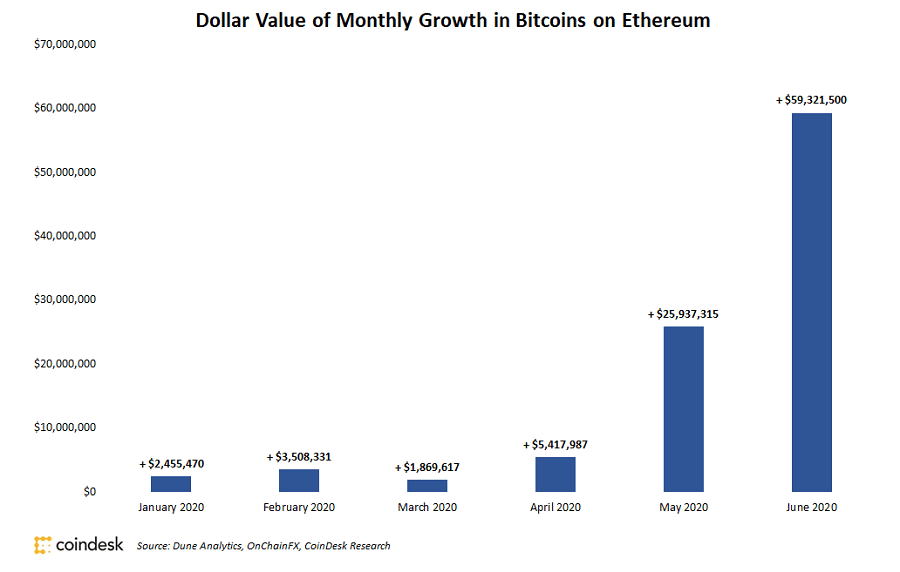
Privacy and security are central to cryptocurrency. Ren preserves these two elements while simultaneously expanding the list of cryptocurrencies which can be used in DeFi applications. There is over 1 billion USD worth of Bitcoin currently being used in Ethereum applications via platforms such as Ren, showing that there is a huge demand for this sort of technology. It could be argued that projects such as Ren are necessary for the growth of not just DeFi, but the entire cryptocurrency space.




